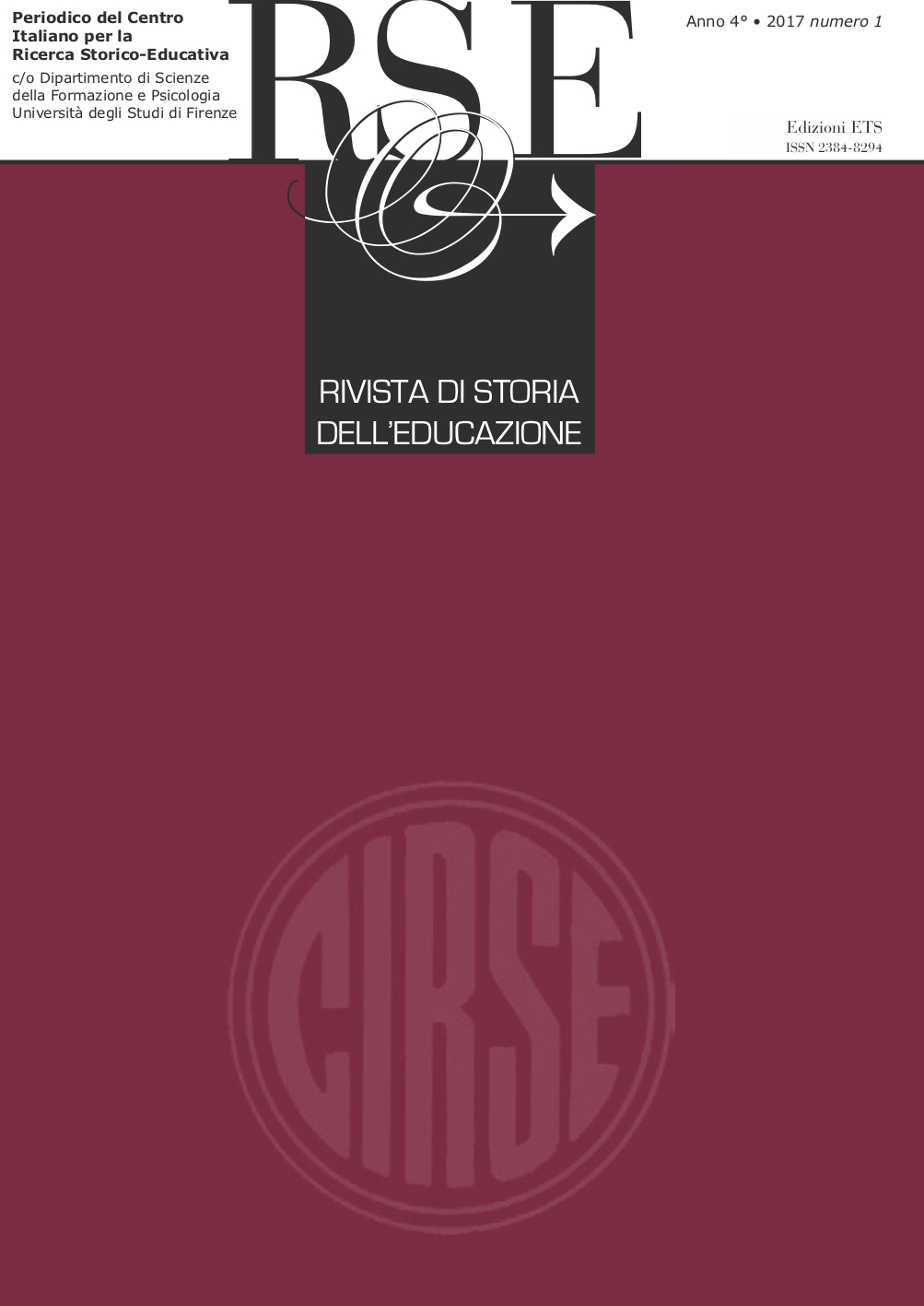A comparative history from below? A local and international history of Nineteenth century schooling
Published 2018-11-17
Keywords
- primary school; comparative history; transnational history; social history; history of education
How to Cite
Abstract
In an increasingly globalized world, the nineteenth century expansion of mass schooling can no longer be interpreted merely from within a national framework. As a result, vital efforts have been made to investigate and conceptualize the international and transnational histories of schooling. Using the historiography of nineteenth century schooling as a starting point, this article presents prospects for how these conceptualizations may be further developed employing the notion of a comparative history “from below.” In this article, this notion indicates an analysis that does not take national or supranational entities as the point of departure, but instead promotes a comparative history based on the local level (school districts, municipalities, townships). Consequently, the focus of investigations will shift from national politics, transnational circulation of educational ideas, and international conferences, to the mundane history of schooling, covering issues such as local funding, local school politics, and the practical, and often non-event-worthy, realities of schooling. Although such investigations do not mainly address the oppressed or the marginalized, a comparative history from below implies a focus on the ordinary schoolchildren, parents, and teachers, and their schools. What this article consequently proposes is an international history of schooling that is simultaneously local, and a local history of schooling that is simultaneously international.

